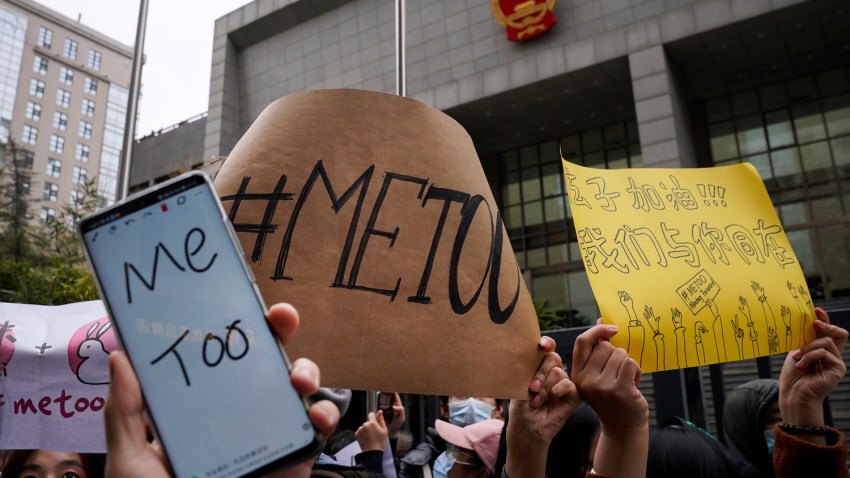When Zhou Xiaoxuan, a former intern at China’s state broadcaster, was groped by Zhu Jun, a prominent news anchor, in 2014, she was told by police to keep quiet about her ordeal and consider his status as a national “positive energy” icon. Simply put, Zhu’s value as a newscaster was deemed by law enforcement to be more important than justice for Zhou. Zhou, who also goes by the nickname of Xianzi, later filed a civil suit in 2021 to seek damages, a move that turned out to be unsuccessful. Though her civil suit was dismissed a year prior to the Johnny Depp-Amber Heard defamation trial, in which Depp was awarded $15 million in damages on June 1 after a grueling, televised six-week trial, the similarities between the two cases highlight a common undercurrent that connects gender violence—and the risks for victims who speak out—across different societies around the world.
In China, as elsewhere, women who accuse powerful men of harassment and sexual violence open themselves up to absolute devastation. Those who do come forward with stories of abuse can expect to meet a cocktail of state negligence, public scorn and much more. By contrast, powerful abusers can, and usually do, readily wield a full arsenal of wealth, fame and political connections in order to silence, intimidate and otherwise ruin the reputation of the women that accuse them.
Xianzi and other women who make up China’s #MeToo movement might not see overt similarities between their experiences and that of a Hollywood actress slapped with a defamation lawsuit by Depp, Heard’s ex-husband, after she wrote in a 2018 op-ed that she had become a “public figure representing domestic abuse,” without even explicitly naming Depp. However, the swift backlash Heard faced—including allegations of lying in order to win public sympathy and, with it, employment opportunities—bears a chilling resemblance to Xianzi’s experience, as well as that of other Chinese women.

